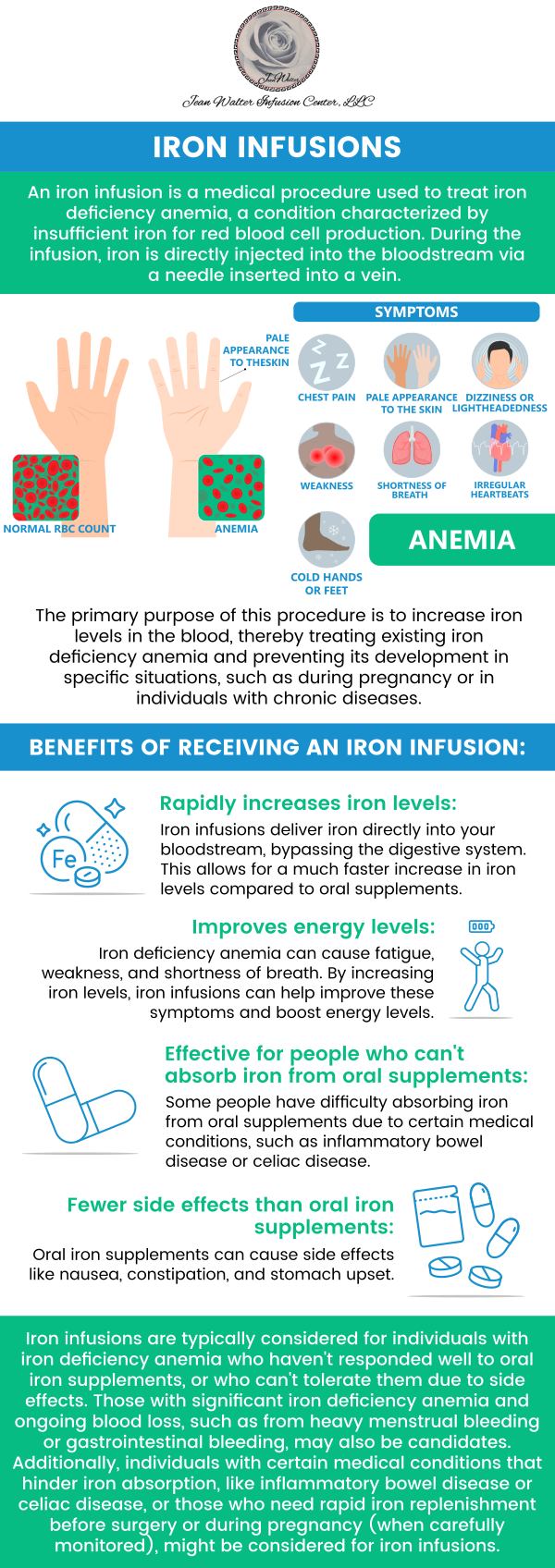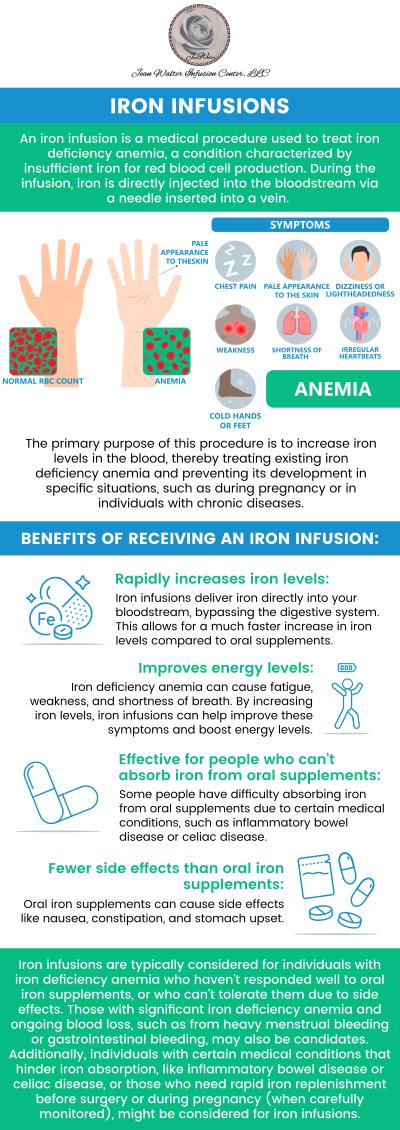Iron Infusion Cost in Catonsville MD
When oral iron supplements are ineffective or are not an option, iron infusions are a successful treatment for iron insufficiency. Anemia, or a low red blood cell count, can be treated by increasing the quantity of iron in a person’s blood. If you are suffering from iron deficiency, visit Dr. Nasser Nasseri, MD, and his team for affordable iron infusion therapy. An iron infusion generally ranges from $400 to $4,000 per session, depending on several factors. These include the type of iron medication administered, the total number of infusions required, and the extent of insurance coverage. We are conveniently located at 700 Geipe Rd, Suite 200A, Catonsville, MD 21228. For more information about the cost of iron infusion therapy, contact us or request an appointment online.




Table of Contents:
What is the average cost of an iron infusion in Catonsville, MD?
Will insurance cover iron infusions?
Is it worth getting an iron infusion?
What does anemia fatigue feel like?
The cost of an iron infusion may differ from place to place depending on several factors, including geographical location, healthcare provider, educational background, and insurance coverage. The geographical area is extremely important when it comes to treatment prices due to the specific demand for the treatment desired and the number of healthcare providers available to administer the specific treatment. The ability to fulfill the demand also affects the price range if there is high demand and low availability. Typically, the cost can range from $400 to $4,000 per iron infusion. However, it’s crucial to note that the actual cost may vary depending on the specific circumstances of each patient. It’s best to book an appointment to discuss these concerns with your healthcare provider. It’s always advisable to consult with your healthcare provider and insurance company to obtain an accurate estimate of the cost involved.
It’s important to note that insurance plans can vary greatly, and what is covered under one plan may not be covered under another. Therefore, it’s best to reach out to your insurance provider directly to determine if iron infusions are covered under your specific plan and to inquire about any potential out-of-pocket costs that may be associated with this treatment option. Staying informed about your healthcare coverage is crucial to making informed decisions about your health and financial well-being.
It is also important to reach out to your specific treatment provider to determine whether that provider works with your insurance company or not. If they do work with your company, it is advised to discuss with your insurance company how much of the total cost the insurance company will cover to determine your out-of-pocket cost, if any.
It ultimately depends on your individual medical needs and the advice of your healthcare provider to determine whether or not iron infusions are worth getting. An iron infusion is a medical procedure that involves administering iron directly into a person’s bloodstream via an IV. This treatment is commonly recommended for individuals who suffer from iron deficiency or anemia and are unable to take iron supplements orally. The infusion is intended to boost the body’s iron levels, thereby alleviating symptoms like fatigue and weakness. This is particularly helpful for people who suffer from iron deficiency or anemia and cannot take iron supplements orally. If you have a fear or phobia of needles, an iron infusion may not be the best option for you. As with any medical intervention, it is important to consult with a healthcare provider to understand the potential risks and side effects associated with an iron infusion. Then you can decide together whether you think an iron infusion is worth it or not for your individual needs and wants.
Anemia fatigue is a type of exhaustion that is caused by anemia, a condition in which the body does not have enough red blood cells to carry oxygen to the body’s tissues. The feeling of fatigue caused by anemia can be quite overwhelming. Those who are afflicted with this condition commonly describe feelings of weakness, fatigue, difficulty breathing, and shortness of breath. These symptoms can make it challenging to carry out even the most basic of activities, such as ascending a flight of stairs, cooking a meal, doing household chores, or carrying groceries. This can be dangerous because your body and mind are exhausted, and if you live alone and have to rely on your strength and alertness to do your day-to-day activities, it can put you in harm’s way of falling or causing an accident. If you find yourself experiencing these symptoms of anemia fatigue, it is important to seek the advice of a healthcare professional to ascertain if an iron infusion or other available treatment options may be appropriate for your specific needs.
At the Jean Walter Infusion Center, you can get an iron infusion. Visit us to find out more about how iron infusions work and whether they’re beneficial for you. We are conveniently located at 700 Geipe Rd, Suite 200A, Catonsville, MD 21228. For more information about the cost of iron infusion therapy, contact us or request an appointment online. We serve patients from Catonsville MD, Hebbville MD, Woodlawn MD, Arbutus MD, Ellicott City MD, and surrounding areas.
Additional Services We Offer


- Infusion Therapy
- Injection Treatments
- Intravenous Immunoglobulin Therapy
- Medical Conditions
- Asthma
- Crohn’s Disease
- Fibromyalgia
- Gout
- Inflammatory Eye Disease
- Inflammatory Skin Disease
- Iron Deficiency
- Lupus
- Multiple Sclerosis
- Myositis
- Osteoporosis
- Rheumatoid Arthritis
- Ulcerative Colitis
- Vasculitis
- PRP Injections






